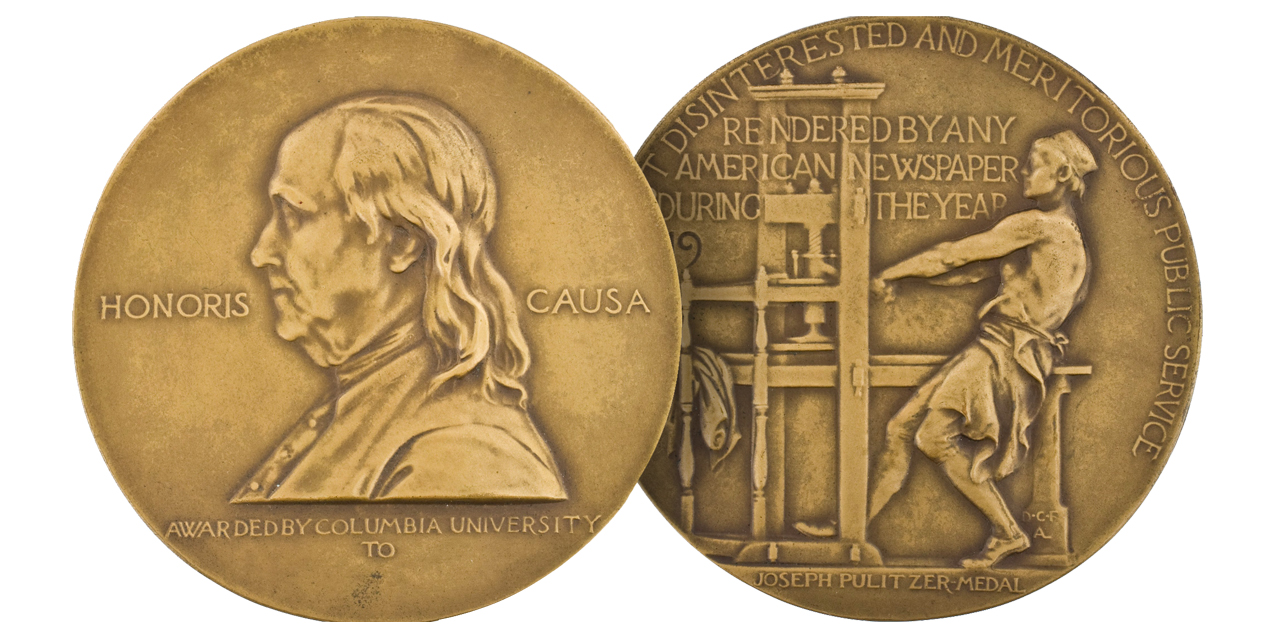Founder of 1619 Project Wins Pulitzer Prize. Here’s Why Pulitzers are Pointless.

The Pulitzer Prize Board has announced that Nikole Hannah-Jones of The New York Times, founder and creator of the 1619 Project, won a Pulitzer Prize in the Commentary Category. The 1619 Project has been widely criticized for false claims, inaccurate history and historical revisionism.
The Pulitzer Board described Jannah-Jones’ award this way: “For a sweeping, deeply reported and personal essay for the ground-breaking 1619 Project, which seeks to place the enslavement of Africans at the center of America’s story, prompting public conversation about the nation’s founding and evolution.”
The Daily Citizen has previously reported on how Hannah-Jones has admitted that some of the original claims of the 1619 Project, like the claim that slavery was the cause of the Revolutionary War, were factually incorrect.
Pulitzer prizes are administered annually by Columbia University. The winners in 20 of 21 categories receive a $15,000 prize, except for the winner in the public service category who receives a gold medal.
The Pulitzer Prize was established by newspaper publisher Joseph Pulitzer, who gave his money in a will to Columbia University upon his death. With his money, Columbia created a journalism school, and used $250,000 to establish The Pulitzer Prize in 1922.
One piece of art, a beautiful stained-glass window which resides at Columbia, was commissioned by Joseph Pulitzer to commemorate his successful effort at raising $100,000 to complete the pedestal of the Statue of Liberty. The window is titled “Liberty Enlightening the World.”
Journalists, who should aspire to enlighten and inform the world, through truth and objectivity, too often fall short. One journalist who fell far short of that ideal was named Walter Duranty, who served as Moscow Bureau Chief for The New York Times for 14 years between 1922 and 1936. In 1932, The Pulitzer Prize Board handed Duranty one of their coveted prizes for his work, the Pulitzer Prize for Correspondence.
During Duranty’s 14 years serving as The Times’ man in Moscow, some of that work consisted of covering up one of the greatest mass genocides in world history: The Holodomor.
Created by combing the Ukrainian words for hunger—holod—and extermination—mor, the Holodomor was a man-made famine in the Ukraine that killed 3.9 million people, according to most estimates. Soviet leader Joseph Stalin and his policies to try and crush Ukrainian nationalism were responsible for this mass starvation of the Ukrainian people.
And Moscow Bureau Chief Walter Duranty was at the center of covering it up.
Bruce Bartlett, an American historian and author, wrote for Human Events, “In late 1932, Stalin decreed that all grain should be confiscated and anyone interfering with this action should be considered an enemy of the state. More than 5,000 people received the death penalty as a result. Throughout the countryside in Ukraine, starvation set in. Stalin sent troops to prevent farmers from leaving the land, where increasingly there was nothing to eat.”
During the famine, Duranty often downplayed its severity in his reporting in The New York Times. “There is no famine or actual starvation nor is there likely to be,” Duranty wrote for The Times in November 1931.”
“Any report of a famine in Russia is today an exaggeration or malignant propaganda,” Duranty again wrote in The Times in August 1933, near the end of the famine.
“There is no actual starvation or deaths from starvation but there is widespread mortality from diseases due to malnutrition,” Duranty wrote, again for The Times, in March 1933.
But while Duranty was playing down the famine in the pages of The Times, privately he confessed that the famine was leading to the starvation of millions.
“On September 26, 1933, at the British Embassy in Moscow, Duranty privately confided that as many as 10 million people had died directly or indirectly of famine conditions in the USSR during the past year. Meanwhile, publicly, Duranty orchestrated a vicious ostracizing of those journalists who risked much by reporting on the catastrophe,” wrote Lubomyr Luciuk, a Canadian professor in The Montreal Gazette in 2003.
Note that this confession from Duranty is just one month after he wrote for The Times that reports of famine was an “exaggeration” and “propaganda” as cited above.
To date, The Pulitzer Prize Board has refused to revoke Duranty’s 1932 Pulitzer Prize, despite concluding after a six-month review that “Mr. Duranty’s 1931 work, measured by today’s standards for foreign reporting, falls seriously short.”
Many of the elites in our society view a Pulitzer Prize as one of the most desired awards in journalism. But that’s hard to reconcile with the Pulitzer Board rewarding one of the worst journalists of the 20th century with their prizes.
The Pulitzer Prize isn’t all that it’s made out to be.
You can follow this author on Twitter @MettlerZachary
ABOUT THE AUTHOR
Zachary Mettler is a writer/analyst for the Daily Citizen at Focus on the Family. In his role, he writes about current political issues, U.S. history, political philosophy, and culture. Mettler earned his Bachelor’s degree from William Jessup University and is an alumnus of the Young Leaders Program at The Heritage Foundation. In addition to the Daily Citizen, his written pieces have appeared in the Daily Wire, the Washington Times, the Washington Examiner, Newsweek, Townhall, the Daily Signal, the Christian Post, Charisma News and other outlets.




